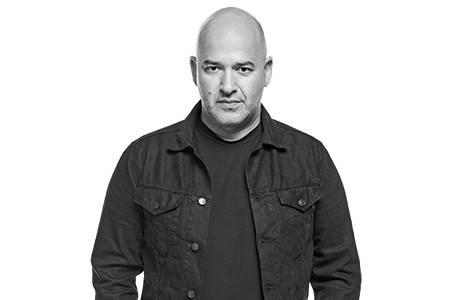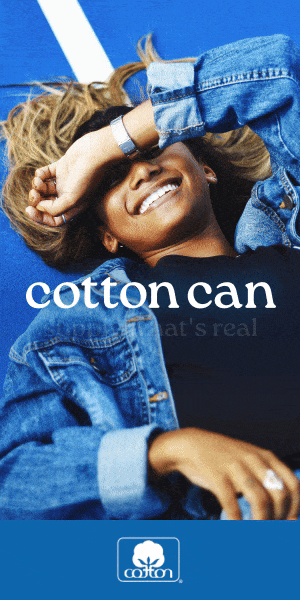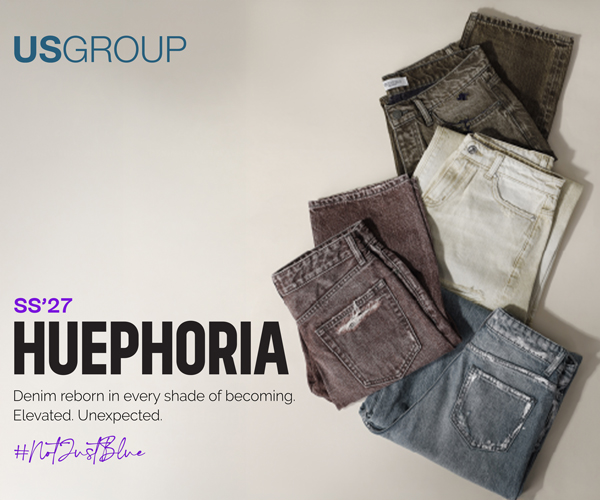Matteo Sinigaglia: Replay toasts to the next 40

As the premium Italian jeans brand prepares to celebrate four decades in business, its CEO Matteo Sinigaglia tells Inside Denim the key to longevity is consistency and authenticity.
Replay invests heavily in R&D. How important is sustainability, and how does this show through the way the fabrics and garments are made?
A Since 2012, Replay has had a big focus on finding new technologies and new ways to make more sustainable products. We did that because it is such an important issue, and it has become a main pillar of our strategy and part of our culture. People want to live in a better environment and they are very conscious about the impact products and actions can have. Reports show that sustainability is one of the core motivations for buying a product for six out of 10 people.
In the past, it was not very easy to show sustainable actions in the product, because it’s down to the way you treat it – using technology, the materials and through the production itself, for instance using waste and recycling raw materials.
We approach sustainability through technology – using lasers and Cloud technology, which saves water and lowers chemical impact – as well as through using organic cotton. We have also recently introduced Replay Reused, where we use cotton that would ordinarily be thrown away postproduction, recycled PET bottles and reuse denim fabrics to give them a new life.
The next stage is to make sustainability more visible and we are introducing a new project in the next few months that uses natural pigment. We have tried to merge natural colours, like landscapes, with indigo, which will be quite new. It will be an important topic.
Replay is synonymous with high quality denim. How does it stand out from competitors and keep customers loyal?
We try our best in terms of selection of materials and partners, offering a consistent and coherent product. Of course, the consumer has the final say. From our data, they appreciate what we’re doing but we are always motivated to do better.
Denim is an interesting business. There are very few companies that can last over 40 years. Our strengths lie in consistency plus our culture in terms of how we make the product. Denim is the item you use most in your wardrobe and it’s part of your life, so it’s quite easy to judge whether a fit or a quality doesn’t work.
Replay has a strong connection with football (as well as rugby and F1), which is unusual for a denim company. Why is the connection with sports important?
Sport, in terms of performance, is beautiful to watch, but it also represents a very inclusive community. It’s genderless and ageless, and it’s one of the most contemporary communities you can find. We decided this was a good arena to be part of and it fits with our idea of being an inclusive brand.
Puma CEO Bjørn Gulden said Replay was one of his favourite brands. How did the project with Puma come about?
Firstly, I would say that Bjørn Gulden has very good taste! The idea was about inclusivity. Denim and sports work together, and we thought our ability to do eco-sustainable washes and use it for sneakers would be something cool. Bjorn and I have been friends for many years, so we decided to see what could happen.
The product had a very defined aesthetic. We selected an iconic design from their side and iconic washes from our side and it came out an original product that merged denim culture with streetwear culture.
Many high-end brands are investing in China as an important area for growth. Is it a big focus for Replay?
I lived in that part of the world for many years, so I know it well. We have great business partners in China. China is a very mature market as far as luxury is concerned. Strategically, it’s very important. We are not investing thinking about tomorrow, we are thinking on a mid-term timeframe: brand awareness, positioning the team. It will be a very interesting market for premium denim in three to four years’ time.
Almost every business has been hit hard by the pandemic, with store closures and falling sales. How did Replay adapt?
The pandemic has affected everyone. Our way to handle it was to be as flexible as possible and to try to react to the unknown. I don’t believe it’s over, we still have some time to adapt. We have to take it as it is. The pandemic is something that had a start and will have an end. We do not change our mid-term vision because of an event – even though it’s a massive event – we build in flexibility, so we can service the market at the right time.
Although some of our stores are closed, we try to be very close to the trade, and we try to do what we are good at: bringing innovations. I believe people still care about having something relevant for them. At a certain point we will come back to regular life, in terms of socialising, and denim will be as important as it was before.
In terms of innovation, wellness is one of our focuses, and we did this with Hyperflex. We try to deliver measurable innovation, which means, once you wear them, you can recognise that they are better than a standard product. We are very focused on wellness and sustainability. They both offer an opportunity for us to develop more.
Replay will be celebrating its 40th anniversary this year. Why do you think the brand is still so strong after four decades, and is the anniversary being marked in any way?
The reason Replay has lasted for 40 years is because it’s always had very good people behind it. Business is done by people. There is also a touch of luck – in life, you have to have some luck. But more than that, it is a very consistent brand. For 40 years it has never tried to be something else, it’s always focused on being real and transparent.
For the 40-year anniversary, we have created some special jeans: as they were made and worn in 1981 and how they are made and worn today. We have created a unique package to show what we have achieved over 40 years. We couldn’t plan a party, as we aren’t sure about the restrictions, but we will be planning some activities from September.
What are your hopes for the future of the denim business?
I believe we have an incredible chance: denim could be the ‘eco king’ of the future. It is a product that is fundamental to everybody’s life. As a company, we do our best, and I’m very optimistic that the denim industry will do the same. There is so much more to do that I feel very positive.













